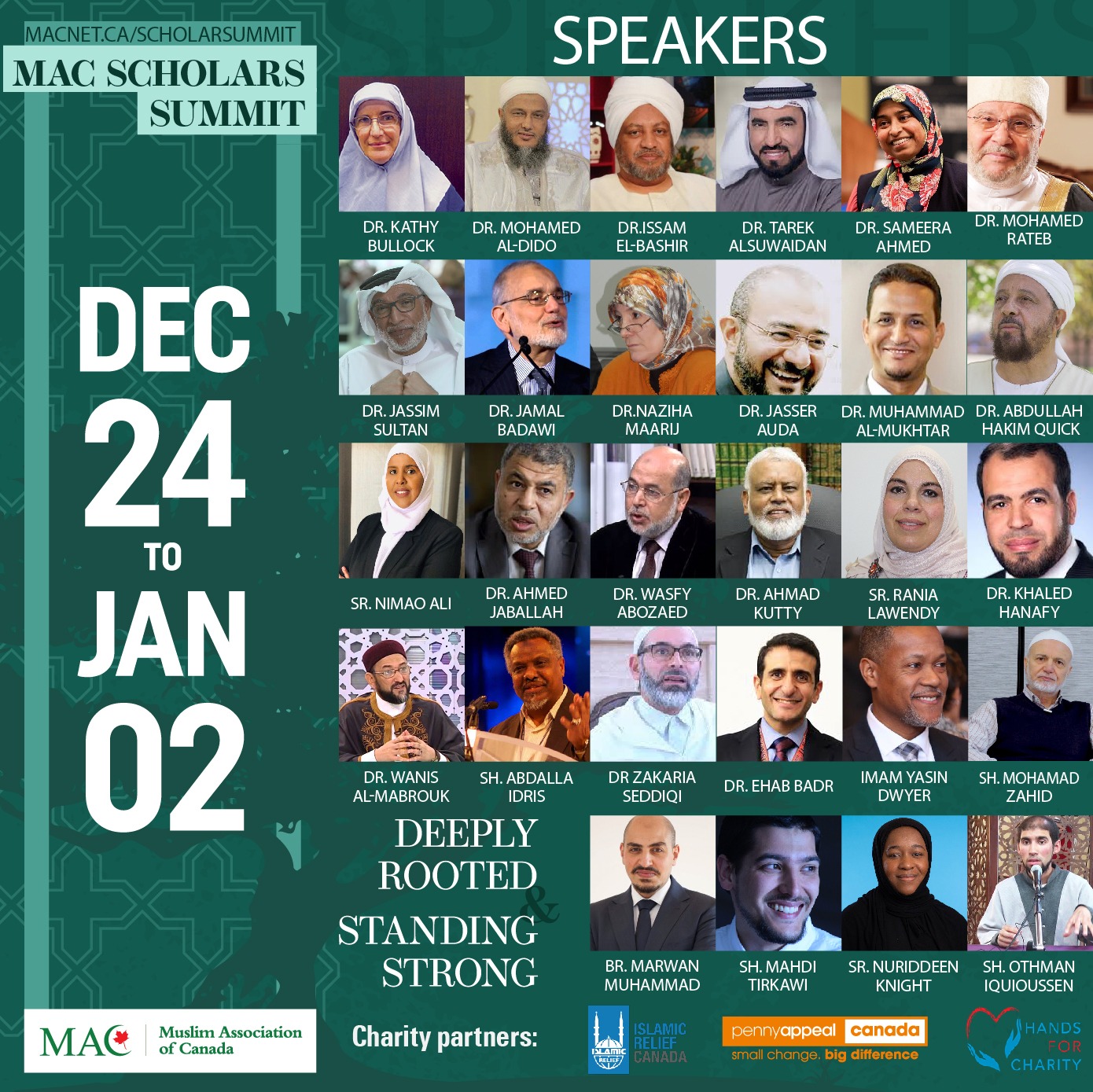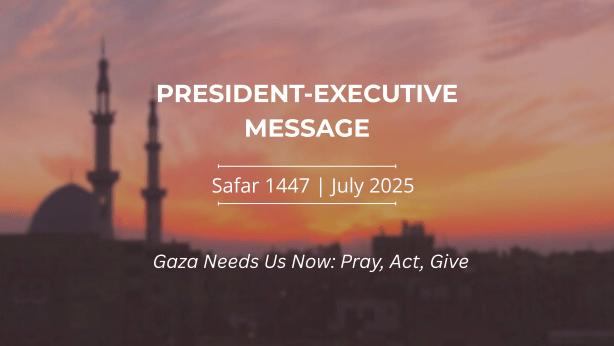As we reclaim our narrative, we must stand firm and proud to our values, traditions and histories

More than 30 distinguished Canadian and global Muslim scholars and community leaders joined the first trilingual virtual summit themed Deeply Rooted and Standing Strong. Over 10,000 attendees across the nation joined the Muslim Association of Canada’s (MAC) first Scholars Summit.
Islamic conventions are not new in North America. Many Muslims have found their faith or reaffirmed their Muslim-North American identity through the spiritual growth experienced in a weekend full of moving lectures by celebrated scholars and community leaders.
The MAC Scholars Summit was designed with a different goal – to take attendees on a journey from spirituality to action through dialogue, as scholars spent 10 days developing a deep rooted understanding of Islam based on the Qur’an and traditions of the Prophet Mohamed (peace be upon him) but grounded in the context of a proud and distinct Muslim-Canadian identity. The summit brought together scholars who have been on the forefront of addressing Islamic issues, developing relevant fiqh (Islamic jurisprudence) for our modern times, and contributing intellectual thought to the challenges the Muslim world is facing today.
In a world full of uncertainty, we rely on our faith as a frame of reference to ground us in the most difficult times. We reflect on examples of those before us who have shown patience and resilience in times of struggle inspires us to do the same. With this inspiration we must also define our own narrative – the way we see others, the way we ground ourselves, the way we project ourselves, and the way others see us.
The summit opened with one of the leading scholars of our time Sh. Mohamed El Hassen Dido who defined the big picture of maintaining a strong sense of faith and focussing on the timeline of eternity. The core of this understanding is the most profound miracle sent to mankind – the Qur’an – the blueprint to elevate humanity to peace and success in this world and the next. Today more than ever, we need to look to the guidance of the Qur’an to navigate the most intricate details of our life as well as solutions to society’s ailments. The Qur’an’s timeless messages not only speak to the hearts of believers, but to all of humanity. Dr. Jamal Badawi brought light to understanding the role of Qur’an and the importance of understanding the context of revelation. Dr. Tarek Al-Sweidan developed the discussion to our connection with the sunnah of the Prophet PBUH and it’s application to our current realities and how Muslims should be a model to others and offer a shared vision for society.
As we define our narrative as Muslims, we must begin with a worldview, as the ummah has become a virtually connected global community. Dr. Jasser Auda reflected on what perspectives influence our worldview and how a god-centered lens allows us to seek truth and justice. As we contemplate Islam from a global lens, Dr. Kathy Bullock and Imam Yasin Dwyer tackle the question of how we reconcile our Islamic identity amidst multiple identities around us by understanding that Islamic values are universal values that are beneficial for all of humanity.
Ultimately, Muslim-Canadians need to take practical steps towards reviving Islam in the 21st Century. Dr. Abdullah Hakim Quick discussed our challenges as we reclaim our narrative, and stand firm and proud of our values, traditions and histories. Islam is a way of life and its universal message extends beyond time or place. In the fast-paced, changing times that we live in, Sheikh Ahmed Kutty explained how we ensure that we understand the foundations of our religion and apply it to our everyday lives, and build a community of believers.
Practical implementation of this narrative starts with strengthening the faith of our children. In this generation of social media where our beliefs can be defined by anyone and anything, and instant gratification has become the norm, our faith may waiver and we may find ourselves compromising aspects of our faith or even find ourselves on the fringes of belief. Sheikh Abdullah Idris offered guidance on how we can foster a God-centered conscience amongst ourselves, our children and our youth generation. Dr. Sameera Ahmed spoke on building resilience in our youth and Dr. Nuriddeen Knight highlighted the significance of female scholarship in Islamic history and contemporary times.
As Muslims we continuously strive to learn and grow as individuals, while simultaneously working to positively impact those around us – our community, society, and ummah at large. Sheikh Muhammad Zahid and Sr. Nimao Ali addressed how to find the right balance between our responsibilities of self-development and community activism without losing focus.
The summit brought together the Director of the Collective Action Against Islamophobia in France, Br. Marwan Muhammed, with Montreal-based Sheikh Mahdi Tirkawi to discuss the impacts and of islamophobia in France and Quebec, its ramifications, and how we should stand against state-sponsored islamophobia.
Using Zoom technology, the summit offered real time translation in English, French and Arabic. At the beginning of each session, to celebrate young talent, the summit invited children and youth from across Canada who have excelled in the memorization of the Qur’an at MAC Quran schools to open with recitation.
As Dr. Al-Nabulsi explained that in a time where so many desires pull at us, our hearts need to act as our internal compass. All that is around us can become a source of goodness, or a test. The summit presented Muslim-Canadians with how to calibrate their internal compass as an individual, a family, and a community so we can navigate with accuracy and strength while anchored in our faith.
They count it as a favour to you that they accepted Islam. Say: “Do not regard your (accepting) Islam as a favour to me; rather, Allah has bestowed a favour on you by guiding you to faith, if you are truthful (in your claim to be believers). (Qur’an 49:17)
Khaled Alqazzaz is the education director at the Muslim Association of Canada, a founder of the Institute for Religious and Socio-Political Studies, a board member of Zajel Institute, and a member of the International Justice Circle at Human Rights Watch.


